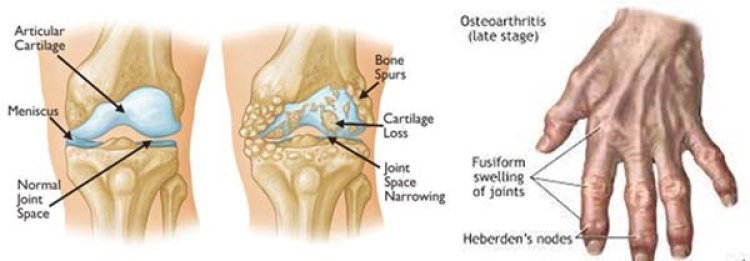Arthritis Patient Awareness Programme
Rheumatoid arthritis reducer the life span of an individual by more than ten years of normal expected. It is one of the important risk factor for premature coronary artery disease, hypertension, stroke in young, osteoporosis etc. Despite this rheumatological disorders do not figure in the list of noncommunicable diseases of India.

New Delhi, October 17, 2012 : Arthritis is a state which can occur in more than 200 clinical conditions. Correct diagnosis depends on presence or absence of associated symptoms. Disease is not confined to the joints only but can involve vital organs like kidneys, lung, heart, brain etc.
Arthritis symptoms :
Few commonly occurring symptoms in arthritis are painful swelling around the joints with early morning stiffness of more than 30 minutes, fever, skin rash, dryness of eyes and mouth, recurrent oral ulcerations, genital ulceration, clot in the veins or arteries, sudden loss of vision, blood in sputum, recurrent abortions, inflammatory back pain, skin tightening, gangrene, convulsions, numbness etc.
It can occur in any age group and any gender. It is not hereditary and non-contagious.
Common chronic causes of disability
Arthritis and other rheumatic conditions are among the most common chronic causes of disability worldwide. In US more than 43 million adults are affected and approximately 40% of them have severe limitation in function on a daily basis. The three most common causes of disability continue to be arthritis or rheumatism (affecting an estimated 8.6 million persons), back or spine problems (7.6 million), and heart trouble (3.0 million). For both sexes, the prevalence of disability doubled in successive age groups (18-44 years, 11.0%; 45 -64 years, 23.9%; and 265 years, 51.8%). Prevalence of arthritis is increasing worldwide due to, modern lifestyle and urbanization, which involves sedentary life style, obesity and increasing life expectancy which leads to osteoarthritis.
The growing epidemic of obesity may also significantly contribute to the future burden of arthritis. Arthritis makes it very difficult for individuals to be physically active and many become home bound resulting in frequent absenteeism from work, depression etc. and a vicious cycle sets in. In India we do not have properly conducted epidemiological studies in rheumatological disorders but based on existing data arthritis and other related conditions affects 18% people in India (approximately 28 million people) which is much higher than the prevalence of diabetes mellitus, hypertension, Coronary artery disease and HIV. Rheumatoid arthritis reducer the life span of an individual by more than ten years of normal expected. It is one of the important risk factor for premature coronary artery disease, hypertension, stroke in young, osteoporosis etc. Despite this rheumatological disorders do not figure in the list of noncommunicable diseases of India.
Shortage of trained rheumatologist in India has led to management of these diseases by untrained doctors, practitioners of alternative medicines and quacks. Because of arthritis there is significant loss of work days as delayed diagnosis and improper management results in disability and deformity. Only less than 15 trained rheumatologist are produced every year in India, it will take decades to get the required numbers.
In India, arthritis is a much neglected problem. There is unawareness among the patients as well as the physician which results in delay in diagnosis and treatment causing irreversible joint damage, deformities and disability. General perception among the population is that arthritis is related to bone diseases and patients go to orthopedic surgeon for treatment resulting in wrong diagnosis and treatment. Patients keep on taking pain killers and steroids which have significant toxicity and create more complications without adequately controlling disease activity. There is a need to increase awareness about the disease, its prevention and rehabilitation. Problems need to be tackled at grass root level in community to prevent loss of productivity in population.
With the advancements in the medical science various arthritides are very much treatable. But the medicines available are very expensive and need to be taken for long periods, so affordability becomes an issue for many people. There is a need for the policies and schemes to make the drugs cheaper and readily available so that maximum number of patients could be benefited.
-Dr. Uma Kumar, Head, Clinical Immunology Rheumatology Service (AIIMS, New Delhi)

















